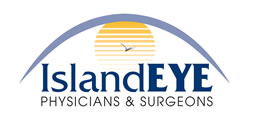Macular Degeneration Treatment & Evaluation
Age-related macular degeneration (AMD) is the deterioration of the part of the retina responsible for central vision and fine detail, called the macula. The macula only makes up a small part of the entire retina, but it is what allows you to read fine print, thread a needle, and read street signs. There are two types of macular degeneration, dry and wet. Most people who have macular degeneration have the dry form. Your ophthalmologist can tell you if vitamins and minerals are recommended for your dry AMD, as not all forms will benefit from the AREDS supplements. Beta carotene should not be used by smokers as it raises the risk of lung cancer. Dark leafy greens, yellow fruits and vegetables, fish, and a balanced, nutrient-rich diet have been shown to be beneficial for people with AMD.
About 10 percent of patients with macular degeneration develop the wet form. The wet form occurs when new, abnormal blood vessels begin to grow underneath the retina and leak fluid or blood. The earlier wet macular degeneration is treated, the better chance the patient has of preserving their central vision. To help treat wet AMD, there are medications called anti-VEGF drugs. Anti-VEGF treatment helps reduce the number of abnormal blood vessels in your retina. It also slows any leaking from blood vessels. This medicine is delivered to your eye through a very slender needle.
Laser surgery may also be used to treat some types of wet AMD. Your eye surgeon shines a laser light beam on the abnormal blood vessels. This reduces the number of vessels and slows their leaking.
Your ophthalmologist will discuss your treatment options with you, and decide how many treatments you need.
